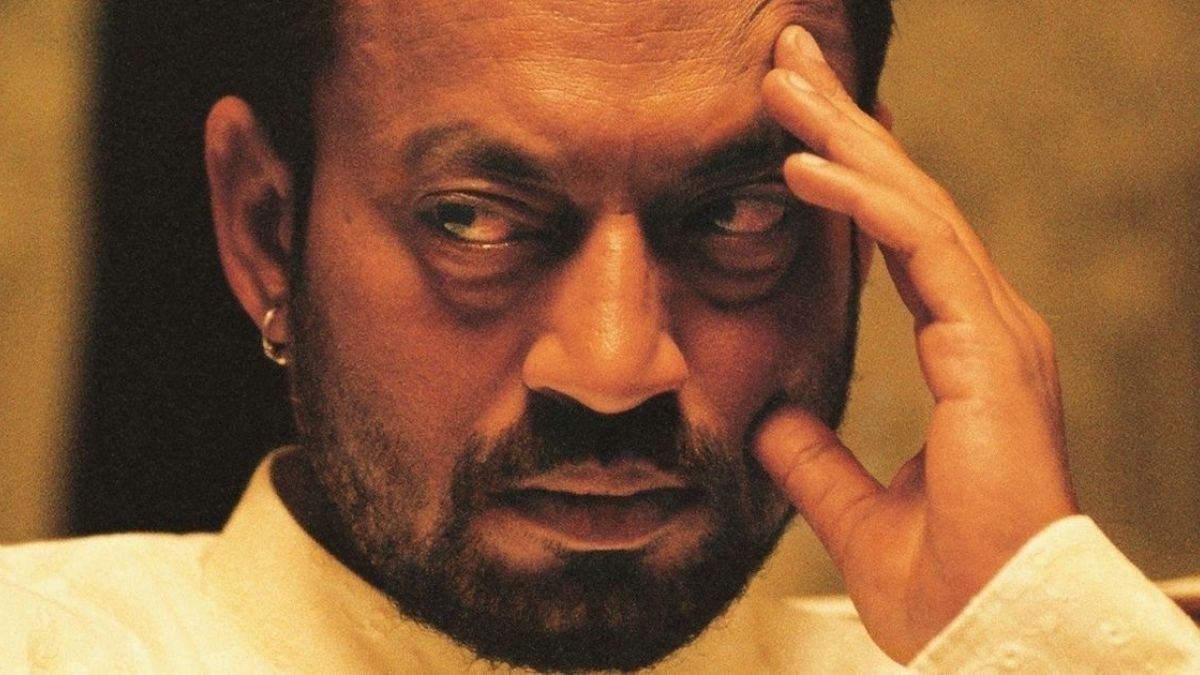
So qabool!
Maqbool
Dir: Vishal Bhardwaj
Cast: Pankaj Kapoor, Irrfan Khan, Tabu
Rating: ****1/2
I think the only Bombay film set in the city’s gangland that deserved a higher rating than above (if film commentary must be synopsised into lame, star ratings) was Ram Gopal Varma’s Satya.
Too bad, the masterful, timely exposition of underworld intrigues and power-play seemingly exhausted the scope of the genre. And each film on a similar theme that flooded theatres thence looked either shades paler, or an obvious Satya-clone.
Among aspects that separate Satya from its progeny is what can be called ‘repeat value’. How full is that meat that each time you view it, you’ve de-skinned something anew —a point that separates good films from the great. For instance you would singularly notice an Andhra-ite goon with egg-yolk-yellow eyes (Satya’s first victim) only if you’ve seen the film more than once. Then his classic line delivered in a typical accent, “Abi drrink bannanna sikkha hoyga’ would ring in your ears — a discovery, though this is the third time you’re seeing the movie!
One could endlessly deconstruct Varma’s 1998 masterpiece. But this piece is about a much quieter, cinematically less ambitious, but firmly on the turf in the same genre, Vishal Bhardwaj’s Maqbool, expectedly the most memorable film of 2004. Importantly, the film stands because, again, it stands the tough test of a ‘repeat audience.’ And the reason is not the most usual, that is songs. The reason is a screenplay, a remarkably flexible adaptation of Macbeth, ably penned by the former music composer-lyricist duo (Bhardwaj and Abbas Tyrewala).
A screenplay that is so strongly seeped in a ghettoised ethos that it begins to permeate your senses. A plot that leaves behind careful asides along the way, suggesting the script’s healthy gestation period. Refined, oven-fresh dialogues to smile to. And then of course the uniquely handpicked set of actors without which this dark yet magical world of Don ‘Abbaji’ (Kapoor), and his street-side empire appears impossible.
One could elaborate on the inimitable, restrained mannerisms of the lead protaganist Maqbool (Khan) as he smoothly, but not surely, changes colours, from Abbaji’s loyal lieutenant to a merciless Brutus. One should spare attention to Tabu’s subtle portrayal of a Machiavellian seductress as she provokes her lover against her loved husband to wrest control of the underworld corporation. Or for that matter, the lesser mortals in this film (the loyal bodyguard or the young, cocky heir apparent of the Mafiosi enterprise who strikes back once Maqbool stakes claim to the chief’s chair by bumping off Abbaji).
Not the least, Kapoor who — though through a performance heavily laden with The Godfather’s Don Corleone hangover — cocks a snook at a generation of filmmakers who never recognised a precious gem. It’s taken 13 years for this talent house to revel in a demanding role since Tapan Sinha’s Ek Doctor Ki Maut.
Unfortunately, what baffled me is the demand for Bhardwaj’s beautifully structured piece of cinema as I watched its first show at a priominent city theatre, with hardly enough paying public for company. Clearly, by accepted definitions the film with enough embellishments and respite (prominent among them, the marvellously executed Naseeruddin Shah and Om Puri’s bumbling cops) is not ‘art house’ by any means. If ‘commercial’ implies larger-than-life escapism, it isn’t that either (though the heavily fictionalised setting that you can hardly relate to, may qualify as wilfull make-believe).
An old theatre lore about Macbeth is a prophecy that any company performing the play is destined for horrible luck. They often lose a member of the company! Not sure if this Shakespearian tragedy’s crew lost anyone during the movie’s making. It should not lose the audience it deserves for sure. Hence this strong recco.
(Column originally published upon Maqbool’s theatrical release in 2004)
